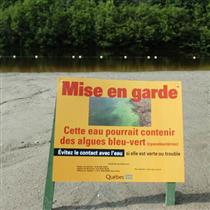 Biodiversity loss needs an internationally agreed rescue plan
Biodiversity loss needs an internationally agreed rescue planGovernments have to stop thinking about biodiversity protection as loss but as an investment to ensure long-term stability
Sept 29, 2010
Robert Bloomfield
Guardian
Plant life in peril - IUCN and Kew Gardens study
Alarming new research reveals human activity is 'devastating' plant life ahead of UN biodiversity summit (COP10), with up to twenty-two per cent of the world’s plants facing extinction
Sept 29, 2010
Dearbhla Crosse
The Ecologist
The research, undertaken by the Royal Botanic Gardens, Kew, the Natural History Museum, London, and the International Union for Conservation of Nature (IUCN), was carried out as part of a worldwide effort to assess the status of the world’s flora and fauna and monitor threatened plant species.
The study, known as the ‘Sampled Red List Index’ (SRLI), is still pending approval but listed species are expected to be released at the end of October. (...)
What Are Species Worth? Putting a Price on Biodiversity
Sept 27, 2010
Richard Conniff
Yale E360
At the UN's COP10 biodiversity meeting in Nagoya next month, officials might look to remind the world why species matter to humans: for oxygen, drugs, making agricultural crops more productive — and a sense of wonder. (...)
Public awareness of the biodiversity crisis is virtually non-existent
Climate change regularly makes the front page, but very few people know about, or understand, the cost of species loss
Sept 16, 2010
Adam Vaughan
Guardian
Bold action is needed to protect the diversity of life on Earth
Instead of spending taxpayers' money propping up factory farms, UK government should support planet-friendly farming
Sept 1, 2010
Andy Atkins
Guardian
Protect nature for world economic security, warns UN biodiversity chief: Ahmed Djoghlaf says nations risk economic collapse and loss of culture if it does not protect the natural world
August 16, 2010
John Vidal
Guardian
Britain and other countries face a collapse of their economies and loss of culture if they do not protect the environment better, the world's leading champion of nature has warned.
"What we are seeing today is a total disaster," said Ahmed Djoghlaf, the secretary-general of the UN Convention on Biological Diversity. "No country has met its targets to protect nature. We are losing biodiversity at an unprecedented rate. If current levels [of destruction] go on we will reach a tipping point very soon. The future of the planet now depends on governments taking action in the next few years." (...)





Aucun commentaire:
Publier un commentaire